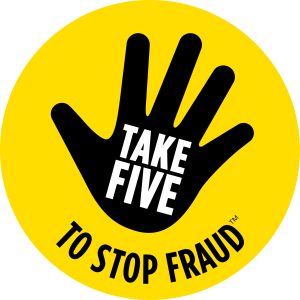Find out your rights to reimbursement if you’re a victim of APP Fraud.
An Authorised Push Payment scam (APP Scam) is a form of Authorised Push Payment Fraud (APP Fraud) and it’s where a scammer convinces a person or a business to make a payment to a bank account that’s controlled by the scammer.
The victim goes ahead with the payment, believing they’re sending money to someone or somewhere legitimate, but the funds actually go to the scammer. APP Scams aren’t like traditional fraud, where transactions could be unauthorised and/or occur without the account holder knowing. APP Scams involve the victim being deceived to the extent they willingly transfer money to a scammer.
These scammers are criminals who use social engineering tactics to deceive people and impersonate others. These tactics help them groom and manipulate their victims into transferring money or giving out personal and financial details.
Scammers tend to do this by contacting their victims over the phone, by email or on social media, pretending to be from places like their bank, a solicitor, a contractor, an estate agent or the police. They’ll often make out that what they’re asking needs to be done quickly, making the victim panic before they get time to think it through properly.
It’s not all bad as there are ways you can protect yourself against becoming a victim of an APP Scam. We’ve popped some more information and some helpful tips below.

APP Fraud - Your Rights to Reimbursement
Find out your rights to reimbursement if you’re a victim of APP Fraud.

Report APP Fraud to us
Let us know if you think that you’ve been the victim of Authorised Push Payment Fraud.
APP Fraud usually involves a criminal using tactics to manipulate their victim into transferring money. Common methods are shown below, click on the headings below to find out more about how they work.
Fraudsters pose as trusted people or organisations, such as banks, government officials, company executives, or even friends or family members to convince their victims that urgent payments are needed. It could be someone telling you that you need to pay a fine, pay overdue tax or even a ‘family member’ saying they need money as they’ve got a new phone and been locked out of their internet banking.
Victims are lured in by promises of high returns if they transfer money to investment schemes that are, in reality, fraudulent. They could be asking you to invest in anything – gold, property, carbon credits, cryptocurrencies, land banks or even wine!
Fraudsters advertise non-existent goods or services online, encouraging their victims to pay upfront, and the promised items never get delivered. These scams usually involve legitimate online platforms like auction website or social media.
Fraudsters pretend to be someone else, using a fake online profile to form a relationship with the victim. After they’ve earnt their victims trust, the fraudster will often start inventing reasons for needing money, usually needing it urgently. They often a promise to pay the money back, but it never is.
This isn’t all the techniques that fraudsters use; they’re constantly developing new and different techniques to scam innocent victims out of their money. Remember, if you are being pressurised into making a payment by anyone – STOP and contact someone you trust – a friend or family member, the police or your bank or building society before you do anything.
They may be clever, and they may use sophisticated tactics but there are things you can do to protect yourself from APP fraud:
Before you send any money, especially large amounts, check the bank details you have using an independent source. Make contact with the person or business directly using a trusted phone number or email address, or one you’ve taken from a trusted website.
Fraudsters often suggest that what they’re asking their victim to do needs doing urgently, rushing victims into making quick decisions. Take all the time you need to make sure it’s a genuine request.
Don’t share sensitive information or conduct financial transactions over unsecured or unverified communication channels such as personal email or instant messaging services.
Awareness is key. You can find information on the latest scams in the press and on social media so keep yourself up to date. New scams evolve quickly.
Regularly review your bank statements and transaction history to make sure there’s nothing there you haven’t unauthorised or anything suspicious. If you find something, get in touch with your bank or building society as soon as possible.
If you think you’ve been targeted by APP fraud, report it immediately to your bank or building society and the relevant authorities including the police and Action Fraud.
To help everyone stay safe from fraud and scams, Take Five to Stop Fraud urges you to follow the following advice:
For more information visit www.takefive-stopfraud.org.uk |
 |
Contact your bank/building society immediately if you think you’ve been scammed and report it to Action Fraud at actionfraud.police.uk or on 0300 123 2040.
Here at The Mansfield, we have processes in place to monitor and detect fraud.
These steps are in place to help protect you and your money.
If you think you’ve been the victim of a scam which has involved you sending money electronically from your Mansfield Building Society account to an account elsewhere, you need to let us know as soon as possible.
There are three ways you can tell us that you’ve you been a victim of an APP Scam:
The Payment Services Regulator (PSR) has recognised the increasing and significant impact that APP scams are having on customers.
From 7 October 2024, there are new rules relating to reimbursing victims of APP fraud. All banks and building societies must have processes in place to ensure that claims of APP Scams are fully investigated and where claim criteria is met, the victim is fully reimbursed for the amount lost in the APP Scam.
Victims of APP Fraud can make a claim to the bank or building society they’ve sent the payment from to be reimbursed for any funds lost as part of an APP Scam. The bank or building society will investigate the circumstances of the scam and will contact the bank or building society that the payment was sent to, to help with the investigation. Customers must ensure they provide any information requested as part of the investigation, failure to provide information could prevent claims for reimbursement being successful.
Following investigation, if a claim is successful, the bank or building society from where the payment was sent from will reimburse the customer with the funds lost up to a maximum of £85000.
The APP Fraud reimbursement rules apply to Faster Payments and CHAPS payments.
More information regarding APP Fraud Reimbursement and your rights can be found here.
Our intermediaries website is for use by authorised intermediaries only.
Please click on the link below to proceed
Continue to intermediaries site